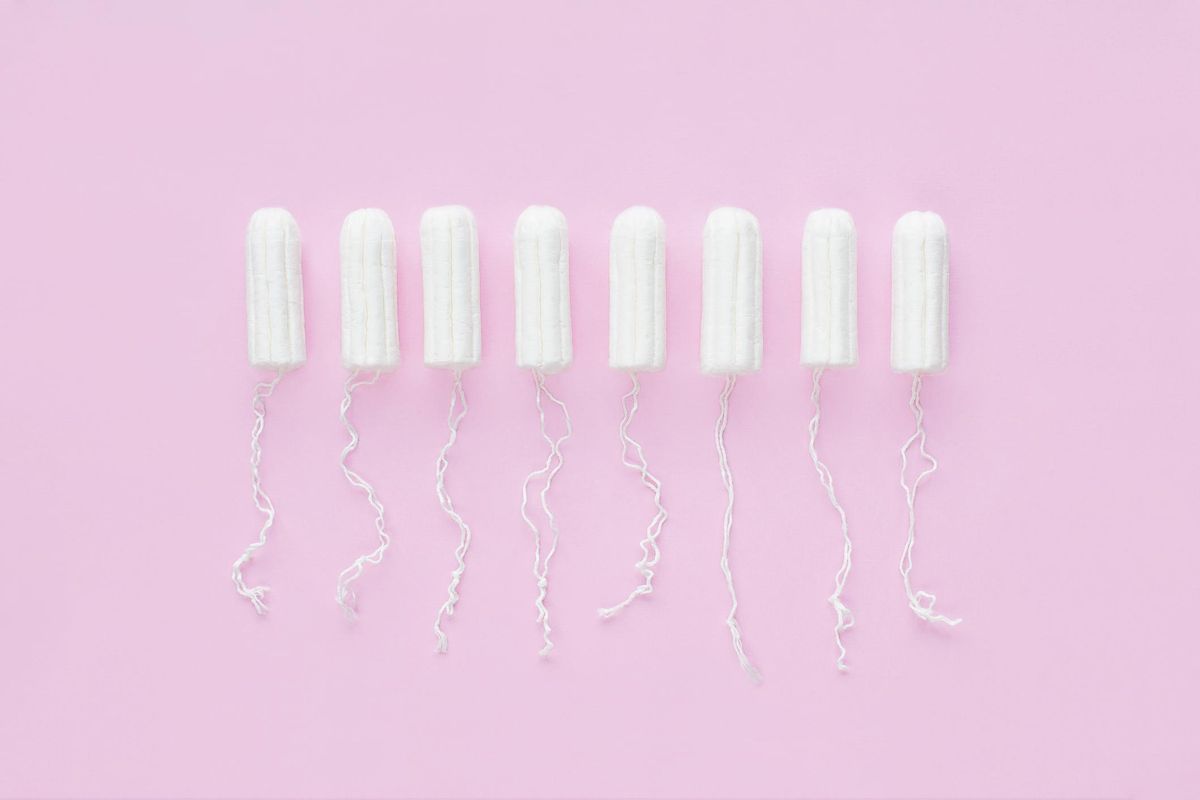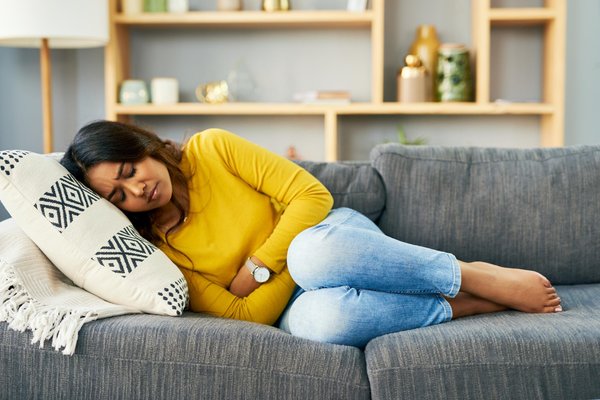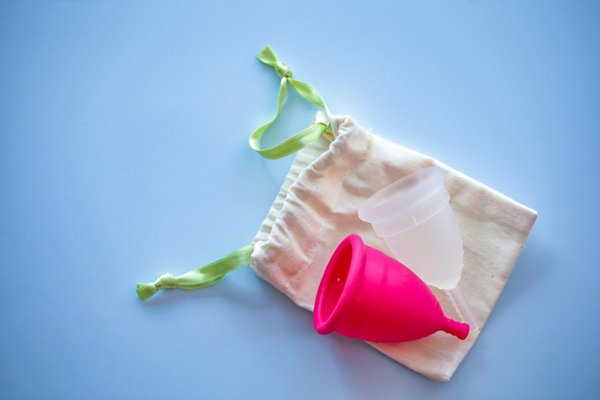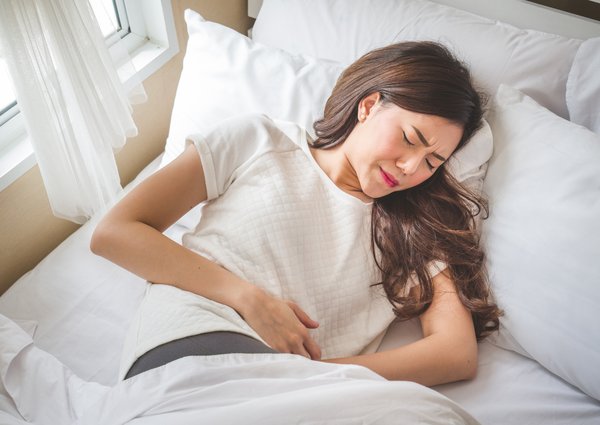That time of the month. Aunt Flo. Monthly visitor. The crimson wave. It seems like everyone has a different nickname for their period, but no matter what you call it, it's totally natural. But, as natural as it is, it also costs you money. And not everyone who menstruates can afford period products.
Period poverty — limited access to menstrual products because of financial hardship — is a significant problem that impacts marginalized communities including women; transgender and gender nonconforming individuals; people of color; and those who are homeless, incarcerated, or living in shelters.
"As a single mother, I have experienced period poverty for years, said Kelsey Kovalik, a dental assistant in Colorado. "Menstrual products are necessary monthly supplies — they are not an expense that you can wait to pay or find a way around."
Families can be especially vulnerable to period poverty if they're already dealing with financial constraints and struggling to cover monthly household expenses. Period poverty is even worse for families who have to cover the costs of multiple people in the household who menstruate. This struggle has been exacerbated during the pandemic since many families have experienced a decline in their income and increased economic challenges.
In the only study of its kind, the brand Always found that, since the pandemic began, 1 in 3 parents are worried about their ongoing ability to afford period products. Limited access to menstrual supplies can also hinder a parent's ability to go to work — and that loss of income becomes part of a vicious cycle that continues to limit access to menstrual supplies.
The price we pay for period products
"When parents are concerned about affording essential items, including menstrual products, this stress and anxiety can also be felt by their children," said Dr. Annie Andrews, a pediatrician and associate professor of pediatrics at the Medical University of South Carolina.
"Poverty is a social determinant of health and can lead to long-term ramifications," Andrews said. "Period poverty can be another barrier that limits [adolescents'] access to school, playing on sports teams and socializing — which can increase social isolation, anxiety and depression."
Limited access to menstrual products can also create medical complications. "Lack of period supplies can force people to use menstrual products longer than is safe and to have to use other things to manage bleeding" says Nadya Okamoto, author of Period Power.
Jennifer Weiss-Wolf, co-founder of Period Equity and an attorney at the Brennan Center for Justice, explained that while period poverty heavily impacts families, it also raises the larger issue of menstrual equity, shame about menstruation, and the stigma that still surrounds talking about periods.
"Many struggling families have to think about how to afford [period products] each month — the stress of this can not be overstated," Weiss-Wolf said.
A recent study commissioned by Period, a global nonprofit working to end period poverty, and Thinx, a period underwear brand, showed that two-thirds of teens reported stress as a result of limited access to menstrual supplies, along with feelings of shame and self-consciousness. Period poverty is also linked to anxiety, depression and feelings of embarrassment.
Aneisha DeArman, a 35-year-old mother from Maryland who works in a call center, says that periods are still taboo and that the impact of period poverty on families is not often discussed. DeArman has had a hard time affording enough products for herself and her daughters and says the cost of menstrual products is high for families because not only are there more people to buy products for, but some people who menstruate also need more products each month than others.
The impact of Covid-19: Making period poverty worse
Marginalized communities, who have been significantly affected by the pandemic, are experiencing period poverty at elevated rates. "We have families that have been heavily impacted by Covid-19 and are having difficulty paying their rent, food, utilities — how will they be able to pay for essential menstrual products if they are already struggling?" says Bria Gadsden, co-founder of Love Your Menses, an organization that provides menstrual education and supplies to communities of color.
Diamond Cotton, a mother of three children in Indiana and a hospital worker whose hours were surprisingly cut during the pandemic says Covid-19 has made it even more challenging to afford monthly products. "As an African American mother, I have seen so many other mothers in my community struggling to get period supplies for themselves and their children," Cotton said.
Cotton also says that, as long as period products are not treated as an essential item, things will continue to get worse for families. "Menstrual products may be sold in different stores — but that doesn't mean everyone who needs them has access to them."
In 30 states, the cost is even greater for families because menstrual products are taxed since they're classified as a luxury item, while other items such as food and medication are usually considered essential, and, therefore, tax exempt. To make matters worse, programs that low income families may need to get medical care (Medicaid) and food assistance (Supplemental Nutrition Assistance Program) don't cover period products.
The Coronavirus, Aid, Relief and Economic Security (CARES) Act includes a provision that allows menstrual supplies to now be covered items in health savings accounts/flexible spending accounts, which allows those purchases to be tax-free. This is an important first step, but it's not enough. Many people don't have these types of accounts in the first place, and they're still left paying taxes on essential period supplies.
"When family finances are tight, even the smallest expense can be an added stress," said Kovalik, who lives in a state that still taxes menstrual products. "Any tax that can be taken off of this necessary expense would be so beneficial to families."
The heightened financial constraints many families are experiencing because of Covid-19 has amplified the role of organizations working to reduce period poverty. Dana Marlowe, founder of I Support The Girls, a global nonprofit organization providing menstrual products and bras, reports a 35% increase in requests for period products since the pandemic began.
"The pandemic is not like other disasters — it's not localized to one area, and the need for period products is widespread," Marlowe said.
In school districts where students have returned in person, the pandemic's impact on a families' finances can make accessing period products even harder, increasing the likelihood of students missing school. At the same time, students learning virtually who got menstrual products at school pre-coronavirus may not have access to those resources now.
Children miss school when families struggle to afford period products. In the Thinx and Period study, 84% of students reported that they or someone they know has missed class during their period due to a lack of menstrual supplies. Resources in schools vary significantly by state. New York, California, Illinois, New Hampshire and Virginia passed legislation requiring schools to provide free products. Some districts supply them, even when it's not legally mandated — but in many schools, students only have access to free products in the nurse's office, typically just for emergencies.
"It's unconscionable that anyone has to miss work or school or pay taxes on products because of their period. [Access to period products] is a basic human need, and continuing to ignore period poverty is unacceptable," says Kovalik.
If you are experiencing period poverty, please contact I Support the Girls, Alliance for Period Supplies, Love Your Menses, No More Secrets Mind Body Spirit or Period.
- Tampons, Pads And Politics Mesh In New Push For Access To ... ›
- Putting a Stop to the Stigma Around Menstruation - HealthyWomen ›
- Why Do We Feel Embarrassed About Our Periods? - HealthyWomen ›
- The Complex Crisis of Period Poverty - HealthyWomen ›
- Struggling with Period Poverty Motivated Me to Help Others - HealthyWomen ›







